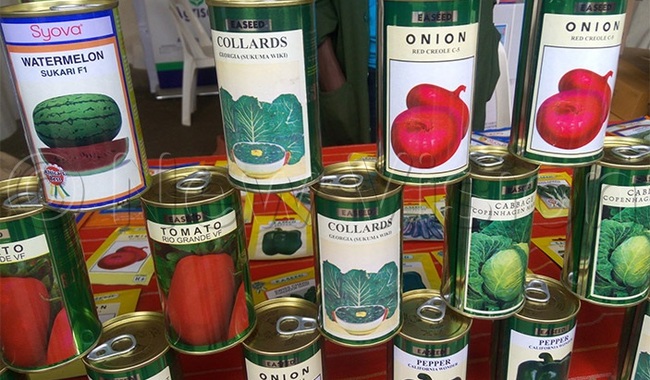COVID-19 crisis affecting the seed sector
“Although some basic seed producers were supplied with the necessary pre-basic (breeder) seed just before the COVID-19 lockdown, many did not get because of the restrictions on public transport.
COVID-19 | SEED SECTOR
As Coronavirus disease (COVID-19) continues to take a toll on human lives, communities have shifted the focus on health and safety, while the government puts in place measures to cope with the impact.
As we abide by the measures, many activities in the society and economy, in general, are disrupted in ways we have never seen before.
The effects are on agriculture, food security, and income generation, among others. The seed sector is no exception since its activities are seasonal and time-sensitive.
Hence, if immediate action to ensure that seed-related activities are not encouraged, there is a risk of setting off a chain reaction that might lead to seed scarcity, which could contribute to a major food crisis.
The resilience of the seed sector is at stake and its constituent functions, such as; production, marketing, service delivery, regulation, coordination, and revenue generation and reinvestment, and the sector's contribution to agricultural performance in general.
The World Bank is projecting economic growth in Sub-Saharan Africa to decline from 2.4% in 2019 and contract by between 2.1% and 5.1% in 2020. This predicts the first recession in the region in 25 years.
Agriculture is foreseen to be one of the sectors impacted most seriously, resulting in many countries in the region facing severe risks of food insecurity.
To assess the impact of COVID-19 on the seed sector, a Seed Alert Uganda assessment was conducted as a result of a collaborative project that brings together experts working in the Integrated Seed Sector Development in Uganda programme (ISSD Uganda), as implemented by Wageningen Centre for Development Innovation (WCDI) in close collaboration with Ministry of Agriculture, Animal Industry and Fisheries (MAAIF), USTA, and various other organizations in Uganda.
What is the impact?
The assessment indicated that COVID-19 measures have reduced the mobility of researchers and others involved in various development, selection, and release, and this will affect the number of new varieties released in 2020.
Godfrey Otim, seed system and policy manager for ISSD said breeding materials have not reached the country due to transport restrictions.
He noted that only 25% of planned maize trials could be established, thus limiting the improved germplasm (living tissue from which new plants can be grown) from which to select more productive varieties.
Otim added that breeders are also faced with the challenge of having to reach breeding nurseries and on-station trials, as well as collecting data on established participatory variety selection (PVS) on-farm trials. The rules on social distancing (keeping 4 meters' distance) are resulting in a labour shortage.

"Although some basic seed producers were supplied with the necessary pre-basic (breeder) seed just before the COVID-19 lockdown, many did not get because of the restrictions on public transport. Public transport restriction also has increased the costs of agri-input deliveries, making them less affordable to farmers," he said.
Otim added that the restrictions on public gatherings, including rural markets, except food markets, hampers promotional events (like seed fairs) for quality seed and other inputs.
Mobility restrictions have also hampered MAAIF inspectors in assuring the quality of the basic seed currently in the field.
"It is expected that basic seed quantities in the second season of 2020 will not be sufficient. This may result in seed producers using other seed classes to produce commercial seed, resulting in increased amounts of substandard seed on the market," Otim said.
What actions are required?
Charles Ssemwogerere, a local seed business coordinator for ISSD, said it was discovered that there is a need to engage the district COVID-19 Taskforces and security forces to allow the transportation and distribution of agri-inputs as an essential service.
He explained that there is also a need to encourage agro-dealers to work with seed entrepreneurs to provide inputs on credit and develop an effective coordination mechanism to facilitate availability and access to agro-inputs throughout the country.
"There's also a need for creating awareness and ensure adherence of seed production workers to COVID-19 safety guidelines. Encourage government and seed company technical staff to provide virtual seed extension services to seed producers through phone calls," Ssemwogerere said.
He also advised seed producers on the use of labour-saving technologies, replace manual weeding with herbicides, and look into options for mechanisation.
Engage district agricultural officers and inspectors to take proactive measures reaching out to seed producers to collect planting returns and schedule inspections.
"Field inspectors need to prioritize inspection services with payment for the service, engage the district taskforces to allow production department vehicles to be used for field inspection, and also MAAIF should provide the required logistics to seed inspectors to do their routine audit inspections in the regions," Ssemwogerere said.
He suggested the need for collaboration with courier services, in the country and internationally, to move seeds and breeding materials where they are required.
Support early preparations for missed seasonal breeding trials, so that experiments can be established in the 2020B season.
"Encourage farmers to make input purchases through local extension agents and farmers' associations, which are free to move using motorbikes. Continue monitoring agro-dealers selling inputs to ensure quality inputs to the market and to minimize substandard inputs that may lead to losses on the farmers' side," he said.
Ssemwogerere also requested the government to speed up the development of the digital seed tracing and tracking system (STTS), providing insight into the demand and supply of EGS.
Ensure that farmers who are hosting PVS trials are aware of government measures for preventing the spread of COVID-19, and work according to them.